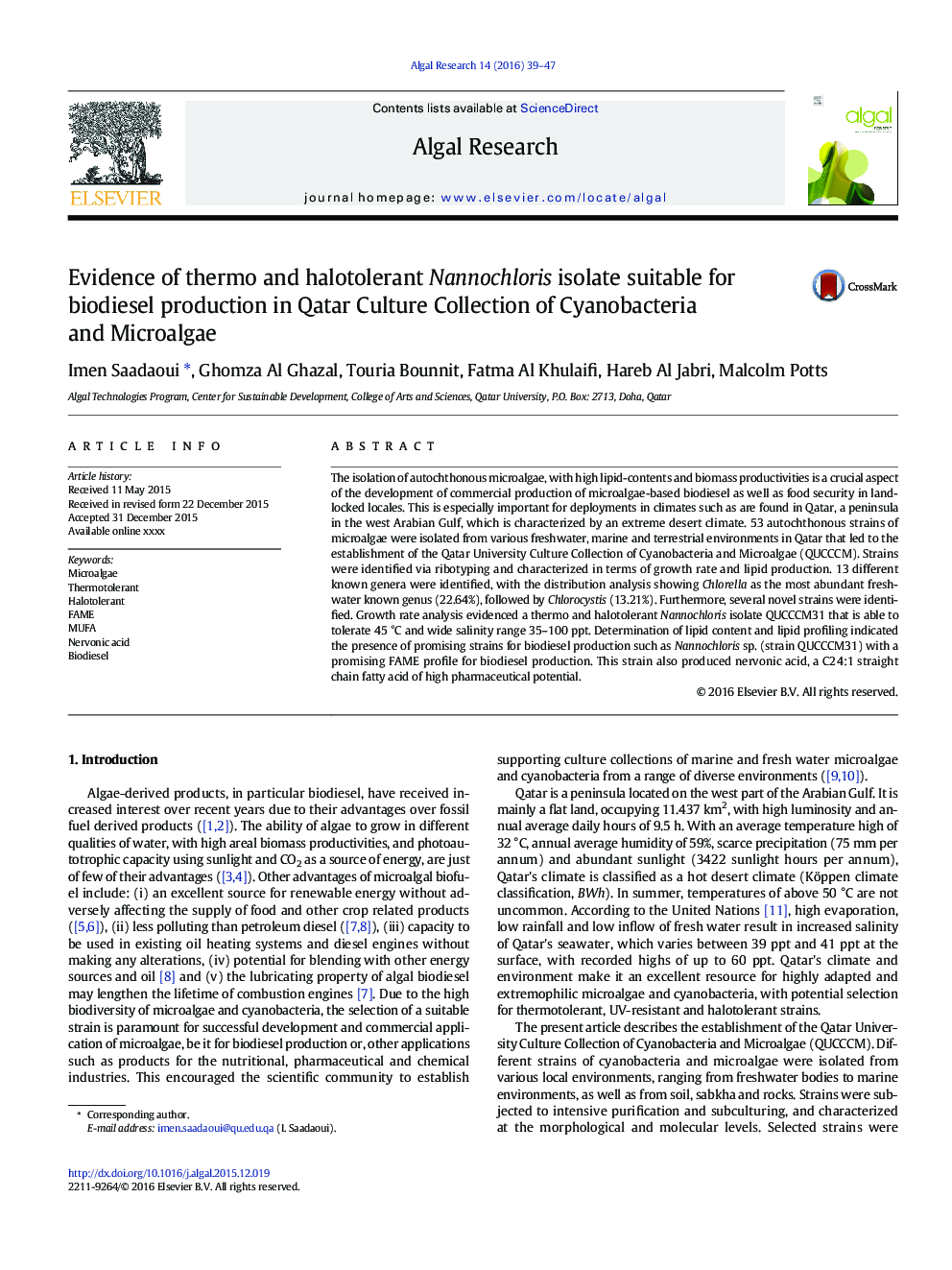| Article ID | Journal | Published Year | Pages | File Type |
|---|---|---|---|---|
| 8087337 | Algal Research | 2016 | 9 Pages |
Abstract
The isolation of autochthonous microalgae, with high lipid-contents and biomass productivities is a crucial aspect of the development of commercial production of microalgae-based biodiesel as well as food security in land-locked locales. This is especially important for deployments in climates such as are found in Qatar, a peninsula in the west Arabian Gulf, which is characterized by an extreme desert climate. 53 autochthonous strains of microalgae were isolated from various freshwater, marine and terrestrial environments in Qatar that led to the establishment of the Qatar University Culture Collection of Cyanobacteria and Microalgae (QUCCCM). Strains were identified via ribotyping and characterized in terms of growth rate and lipid production. 13 different known genera were identified, with the distribution analysis showing Chlorella as the most abundant fresh-water known genus (22.64%), followed by Chlorocystis (13.21%). Furthermore, several novel strains were identified. Growth rate analysis evidenced a thermo and halotolerant Nannochloris isolate QUCCCM31 that is able to tolerate 45 °C and wide salinity range 35-100 ppt. Determination of lipid content and lipid profiling indicated the presence of promising strains for biodiesel production such as Nannochloris sp. (strain QUCCCM31) with a promising FAME profile for biodiesel production. This strain also produced nervonic acid, a C24:1 straight chain fatty acid of high pharmaceutical potential.
Keywords
Related Topics
Physical Sciences and Engineering
Energy
Renewable Energy, Sustainability and the Environment
Authors
Imen Saadaoui, Ghomza Al Ghazal, Touria Bounnit, Fatma Al Khulaifi, Hareb Al Jabri, Malcolm Potts,
